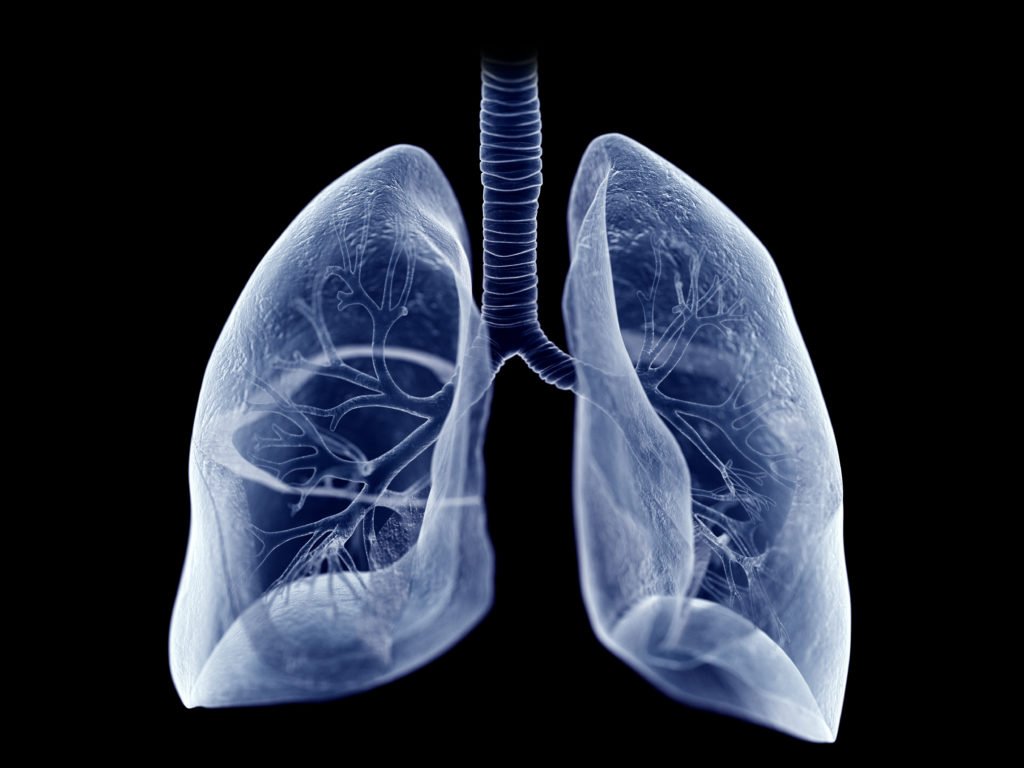
In a study published by a team from Mayo, proton therapy was shown to reduce the risk of severe (Grade 3 or greater) heart complications by 66% and severe lung complications (pneumonitis) by 75% versus the most advanced forms of standard X-Ray Radiation (IMRT).
This reduction in side effects was a result of a significant decrease in radiation exposure to the heart and healthy lung tissue with protons.
Dr. John Chang, Medical Director of Oklahoma Proton Center, commented on the study, “These results are not surprising. We know that radiation to healthy tissue can cause side effects, and this is especially the case in sensitive areas such as the chest, where you have critical organs like the heart. Proton therapy is simply a better option for many lung cancer patients who need radiation as part of their treatment.”
The study assessed patients treated at Mayo Clinic between 2015 and 2018 with a median follow-up of just over two years. Dr. Nathan Yu, lead author, and his colleagues tracked the patients and looked for severe complications resulting from treatment, such as scarring of the heart tissue, swelling of the heart muscle, heart attacks, and pneumonitis.
They were specifically looking at the incidence rate of Grade 3 or greater side effects or the type that could significantly compromise quality of life or potentially put a patient in the hospital.
As reported by the authors in the study: “[Proton Therapy] is associated with a reduced risk of clinically significant pneumonitis and cardiac events when compared with Intensity Modulated Radiation Therapy (X-Ray based radiation) without compromising tumor control in stage 3 non-small cell lung cancer.”
Dr. Chang encourages all patients prescribed radiation to consider proton therapy:
“The fact is that proton therapy will almost always reduce radiation to healthy tissue versus other radiation alternatives. This gives us as physicians the best chance at treating the cancer while reducing side effects and maintaining quality of life for patients.”
Oklahoma Proton Center Patient Rissie Parker was diagnosed in March of 2019 with chordoma – a rare type of cancer that can appear on the spine, tailbone, or brain areas. After multiple surgeries, Rissie was told by her oncologist that she would need traditional radiation. Wanting to follow the doctor’s advice, she agreed. But after three conventional radiation treatments, Rissie experienced painful side effects and no longer felt right about it. Rissie reached back out to her surgical team, and they referred her to Oklahoma Proton Center.
“The difference in the way I felt after my proton therapy treatment vs. traditional radiation was tremendous. There is no comparison. I had no pain, and I knew beyond a shadow of a doubt they were not treating places in my body that didn’t need radiation.”
Oklahoma Proton Center is one of the leading proton centers in the country, having treated over 5,000 patients since opening in 2009. Patients from all over the region have traveled there for treatment for cancers such as lung, prostate, breast, brain, esophageal, liver, soft tissue, head and neck, and more.
“Our goal is to obviously provide the best clinical care possible for patients, but we also want patients to have an excellent experience during treatment. We want patients to get that personalized care where they truly feel like they are the most important person at the facility while they are going through treatment,” said David Raubach, Chief Development Officer at Oklahoma Proton Center.
“Anything we can do to reduce stress for patients, who are often times going through the most difficult thing they’ve ever experienced, is something we will look at.”
Patients or others wanting more information about proton therapy and how it can be used to treat cancer can reach out to the center at (405) 773-6700 or visit the Oklahoma Proton Center website at www.okcproton.com.
- Nathan Y. Yu, et al. Cardiopulmonary Toxicity Following Intensity Modulated Proton Therapy….Clinical Lung Cancer. July 24, 2022.
